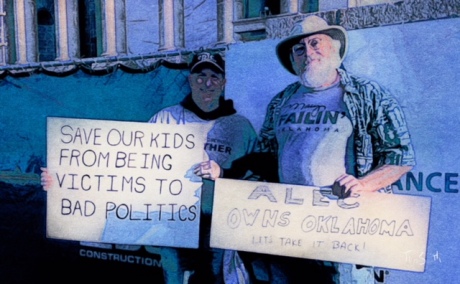Why on Earth would anyone use dog as a derogatory?

Minnie, our current companion
The soul of a dog is pure. When I was in Kindergarten, my teacher gave me a Cocker Spaniel puppy. I suspect this was not a reward for being good student, but a case of having a litter of puppies that desperately needed homes. I named my dog and, for a while, drew her close to my heart. She was a perfect companion – followed me everywhere, never bored with what I was doing, craved my affection. I was fully aware of how much my touch, my time, and my attention meant to her. Slowly, as is often the case, my interests drifted elsewhere and I spent less and less time with my dog. I fed her and gave her the occasional bath and vaccinations, but invested a dismal few hours in her companionship. I neglected my dog. She grew old and lonely.
Years later, when gray hair appeared on her snout and her movements showed signs of age, I remember looking at my old pet, laboriously wagging her tail, and thinking how I wished she would just die, that I wanted a new dog. The next day she died. Guilt hit me like a hammer. There was no doubt in my mind that God had just delivered to me a lesson in life.
Dogs are the loyal to a fault. They are obedient and willing to do anything to please their masters. They are eager to learn. It is truly amazing what dogs can learn to do from a diligent and patient owner. Being pack animals, they want to belong and they love unconditionally. A dog will bond with a human as readily as it would with others dogs and they crave affection. And trust… where can you find that magnitude of trust anywhere else in life? Dogs are naturally affectionate. If a dog is aggressive or dangerous, it is because a human has trained them to behave that way. To be given a dog is to be entrusted with a grave responsibility.
Thanks to social and news media, I’ve seen people who seem to be confused about the relationship between masters and pets – people that seem to think that their pets are their children. I tend to think that they have endowed their pets with an inappropriate sanctity, reserved only for another human, but it’s just as likely that I am only blinded and calloused by my ego. The responsibility you owe to your pet is a training ground for life…
It’s time for me to retire. This year I’m embracing the task of wrapping up my career of thirty-eight years as a teacher and I don’t want to miss anything. I yearn to let it all soak in and savor the experiences during this last opportunity of teaching. It’s time for me to reflect on the lessons I’ve learned, the experiences I’ve shared, and the blessings that have been bestowed upon me as I’ve struggle to learn how to be a teacher. Above all, I am humbled that such an awesome responsibility has been entrusted to me for such a long period of time.
Public school teachers in America are understandably tempted to complain about their compensation, the lack of respect teachers receive, the hateful attitude of politicians and privateers, the erosion of the family, the lack of resources schools face today, and the apathy of their students. In the present political climate, it seems that public school teachers have been targeted as a symbol of what’s wrong with America. We have been villainized and disparaged at every opportunity. Plumbers aren’t treated that way. You don’t see news stories about the slothfulness and misbehavior of engineers or retail clerks. Everyone has gone to school in America, at least for a while, so it seems that everyone considers themselves to be experts on education. Yet, fellow teachers, we knew all of that when we decided to become teachers. We did it anyway and some of us determined to stay in the profession, even when offered other opportunities.
What we miss, if distracted by those problems, is the good stuff. We have been entrusted with the care of children. We have been given the opportunity to try and help them to improve their lot in life: to learn how to learn. Teachers endeavor to empower their students, not just to survive, but to thrive. In the best of times we witness the spark of curiosity, the leverage of skepticism, the energy of diligence, and the wonder of awareness. Those moments are not ubiquitous or automatic – watch for them, make note of them, savor them.
A pivotal moment in my path toward the career of teaching came in a conversation critiquing my own public school experience as a student. At the time I had already graduated from college and was working in the real world. Complaining to my sister, a teacher, about the many faults that my own high school teachers had possessed, she challenged me. She said, “Maybe you should be a teacher. Then you can do a better job than they did.” Like a sucker, I took the bait. I went back to college taking more education courses, earning a teaching certificate, and eventually a master’s degree. The night before my first day as a professional teacher I had nightmares. All my doubts manifested themselves as monstrous criminals exposing my ignorance and threatening my safety. During my young adult years I had put myself in some genuinely stupid and dangerous situations from which I emerged intact, but here I was, afraid of some kids who turned out to be great people. Looking back on that conversation with my sister, let me just say I’ve gained a great deal of appreciation for the teachers of my alma mater. I don’t think I’ve come close to the talents, professionalism, or dedication that they each possessed.

W.W. Samuell High School, Dallas, Texas
I’ve really dropped the ball many times. For most of us, it takes a lot of painful lessons to become a teacher of any quality. There are so many things to overcome: your ego, your lack of patience, your ignorance, your anger, your laziness, your lack of compassion, your intolerant attitudes — this list could go on forever. Teaching is not for everyone. It’s not the right career for many that have been in it for years. It’s not the right career for anyone whose ambitions are dubious. There were many, many times when it was not the right career for me, yet I always aspired to become a better teacher. My wife, herself a veteran teacher, once told me that the difference between us was that I taught mathematics while she taught children. You can easily replace the word “taught” with the word “love”. That is key. If you are to become a teacher, you have to grow beyond the mere love of your subject. An essential skill for a teacher is to learn to care for your students.
A wise person once told me that if you really want to learn something, try teaching it to someone else. I had earned, barely, a degree in mathematics. From childhood, I had always been drawn to mathematics. Math was, to me, pure and unquestionable. It was the pinnacle of human achievement, beautiful and endless. As a rather inept college student, mathematics retained that loftiness, but it also became out of my reach, seemingly unattainable. Yet I persisted, despite failings and doubt, eventually obtaining that degree – a piece of paper that had questionable meaning or value, but I knew it represented something. It was a commitment that, once chosen, had to be obtained.
The mantra, “if you don’t use it, you lose it” was always on my mind as I worked for years in jobs that didn’t require or often apply my degree in mathematics. But once I stood at the chalkboard (yes, it’s been that long ago), I realized that I didn’t know anything at all about teaching mathematics. The teacher has to not only have competency in their subject matter, but also become an educator, psychologist, cheerleader, and a magician. The kids question, “When am I ever going to use this?” And you think, “Are you serious? That’s like: when are you ever going to use oxygen? Just because you don’t see it or think about it doesn’t mean it isn’t essential.” But that’s not the way kids think. Most are expending more energy working to get out of doing something than the energy it would take to get it done. As a teacher, you are trying to provide them with another tool for success and survival and they are questioning your sanity. The teacher has to launch a public relations campaign to sell students on the idea that mathematics is useful. Really?
But onward through the fog:
It’s not about you
Many of the suggestions I needed so desperately as a beginning teacher were offered to me right at the beginning, I just didn’t understand. My first superintendent made a point at every single staff meeting to remind us that the goal of all our efforts was to serve our students. He reminded us that the school wasn’t there to provide us with a job, it was to give our students an education, prepare them, equip them, guide them, support them, help them. During my career I’ve lost count of the number of superintendents I’ve served under, but none of the others ever made this point. It’s basic human nature to focus on your survival. We all need to earn a living, pay the bills, and keep our sanity. Teaching may not be the right choice for achieving those goals any more than the ministry is, or the Peace Corp, or Unicef. If you aren’t driven to serve, to give up personal ambitions, then it would be better for everyone if you considered other ways to earn a living.
And this humility aspect, this commitment to service of others, doesn’t stop with just your career choice: it’s pervasive. You have to combat ego at every turn. You nature will tempt you to react in ways that are counterproductive in the classroom. You will think that a student’s behavior is about you when it’s not. You will think that you how are being judged, and you are, when that can’t be a factor in determining your reactions. It’s an impossible task. I fail at it everyday, but that doesn’t mean it’s not important – that it’s not essential.
It’s not a job
I took lot’s of teacher education courses in college. In the first day of a basic course, the instructor asked everyone to introduce themselves and to explain why they had decided to become a teacher. I remember one young lady, who was probably a very fine person, said something like, “My husband is a coach but doesn’t make enough money for our family to be able to get by, so I decided to become an elementary school teacher because it’s probably the best job that I can get around here.” That seemed to make perfect sense to everyone in the course, including the instructor, but I was appalled. I couldn’t think of a worse reason to enter into the profession. In truth, her words probably impacted me so strongly because there was an element of the same reasoning in my own career choice. Yet it was obvious to me that this was a recipe for disaster. I wanted to plead with the lady to look around and find a better job.
Once more, it’s not about you – it’s about the students. If you aren’t driven, determined, fanatically dedicated to helping those kids, then don’t. The pay stinks. Hardly anyone is going to respect you as a teacher. There is no upward mobility in the teaching career. Please face that right at the start: becoming an administrator, moving to the State Department of Education… whatever, those are all moves out of the teaching profession. They are all managers or bureaucrats. In my experience, most of them disdain teachers, considering us a necessary evil. There are considerable efforts afoot to replace teachers with online courses. You have to put all that aside so that you can focus on your real task.
Don’t be dominated from above
There are going to be demands for you to conform. Beware.
There are standards: read them, consider them, try them, but don’t blindly adopt them. If you feel in your heart that there is something important to teach, then teach it – even it is not in the standards. Those people who wrote the standards are not really the sages we assume they are. They are just other teachers who are also struggling, making decisions, hoping for the best. Sometimes they aren’t even teachers. They may be lobbyists. There agenda may not be yours. Consider their efforts, but don’t blindly adopt them.
There are mandated tests: these are not your friends. They come from above with the pretense of reform. That is a code word. Today it means “deconstruct”, “undermine”, and “eliminate.” Sure, there is a pretense of accountability. Sure, there really are teachers out there who do a crap job and should be weeded out. Tests are not getting rid of incompetent and ineffective teachers any more than a war will win the peace. Principals will come to you with test preparation books. Give them a read, then put them in a drawer somewhere and forget about them. There has never been a standardized test that helped a student learn or succeed. Your principal may evaluate you by how well your kids do on standardized test. So what? That doesn’t have a single thing to do with you or your students. Embrace the task that’s important, do what really works for you and those kids in your room. If you get fired, it is probably a blessing. Move on. There are other ways to serve.
There are veteran teachers, department heads: listen to them, be polite. Then go back to your classroom and follow your heart. Keep listening and considering, weighing their opinions, but don’t submit with docility. Sadly, some folks have an issue with control and their own dominance. The act of surviving doesn’t confere wisdom or righteousness.
Listen to your students
This is harder than you might think. Even if you hear them, you may not be getting it. They’re words will sound like judgements, threats, distractions, gossip, idle conversation, or insanity. When I’m in the classroom, there is always something I want everyone to be focused on. I’m compelled, by my nature, to want to insist upon that focus. There is this assumption that classroom teachers have to control their environment. We have to establish this safe place where learning can occur. You know you have to get your bluff in and that classroom management is the key to survival. Don’t let these thoughts turn you into a ruthless dictator – it won’t end well. All the time there are little hints about what is really going with those kids. They are trying to tell you what you need to know in order to effectively help them. But, I’m telling you – this is hard. Nothing ever prepared me to listen to these kids. Take a minute before you react. Try to understand what that kid just said. There is always a chance that it might open a door to understanding what it really going on. A peek inside that door might just keep you from doing something stupid and closing other doors forever. When a student says, “I don’t care” they may really mean “My parents had a fight last night and my dad left.”
Pray
I drove a school bus for ten years. There were some very interesting experiences during that decade. My route crossed a busy (and dangerous) four-lane divided highway and a railroad track, so I made ran that gauntlet four times every day — that adds up to about 7000 times. This was back before cell phones and my district didn’t have radios, so if something happened, you were pretty much on your own. It was all rural gravel roads, ditches, rain and snow. My gas tank fell off one day. A tie rod broke once and the left wheel turned left while the right wheel turned right. An airplane crashed on my route. I came up to a creek crossing early one morning while it was still dark and discovered that the bridge was totally gone, burned up the evening before.
One very foggy morning, I came up to the railroad crossing and realized I couldn’t see even 100 feet. This was a crossing on a gravel road that only had a sign – not enough traffic to warrant warning lights or a gate. I had really good kids on my route and when I told them to be quiet, they were. Perfectly quiet. The fog was so thick that I turned off the engine and opened my door, listening for a train. There was nothing. So I told the kids that I could not see or hear anything and I was going to start the engine and cross as quickly as possible. And that’s what we did. The engine started immediately and we bolted across the tracks. We hadn’t gotten ten feet across when a train horn blew. This train had to be going fifty miles an hour. My heart stopped and I can imagine that the kids in the back all peed their pants. I turned off the bus again and it had to of been ten or fifteen minutes before I recovered sufficiently to make the rest of the trip to school. The railroad crossing at this little town had claimed many lives over the years. The highway crossing has claimed far more.
At no point in my life have I ever been so diligent in prayer. I prayed before my route each morning asking for the safety of my charges. I thanked God after the route for our safe return. I went to my bus early just to have time to pray. There is no doubt in my mind that God watched over that bus and blessed those children. I could write a book just about the things I experienced on that route. My bus driving salary was $500 per year. The route took nearly an hour every trip, I had to wash the bus and take it for oil changes. It was our Christmas money. If you don’t think praying will help you in the classroom, try it anyway.
If you assign it, read and react to it
Sometimes I wonder why I give writing assignments. Am I punishing myself? Kids think it’s so mean to ask them to write three paragraphs. They have no idea how long it takes to read all those paragraphs, mark grammatical and spelling errors (hey kids – use spell check!), mark run on sentences, and make suggestions for a clearer meaning. But it doesn’t seem to take long before they realize that you are interested in what they have to say. That awareness seems to diminish their plagiarism and encourage their thinking. The quality of their work and the level of their research both improve it you read and react to their work. You also get to know them and they are very interesting people. There’s a lot to learn from our students.
Most of my career was teaching mathematics. I assigned problems and tried my best to use the student’s work to determine their level of understanding and to guide them by using corrections and comments on their papers. This requires an enormous amount of time and it seems they usually don’t even look at your marks. My mantra was “Show your work!” To this day I have no use for an assignment where the student just writes an answer. I know I’m old school, but I believe a calculator should only be used on problems where the student has clearly demonstrated an understanding and proven their competency of all the mechanics of reaching that result. A calculator is appropriate for the time consuming minutia that you know they have already mastered, when they are working a bigger problem where understanding and problem solving skills are over and above the calculations. I think they should able to plot a sinusoid with pencil and graph paper before using the graphing calculator. Sure, use the calculator to find the values of points you’re going to plot (the days of books of tables, slide rules, and interpolation are over) but have the skills to plot the points and connect the dots.
Even if most of my efforts were ignored when I attempted to encourage skill building by pointing out where the student went wrong on their homework problems, I still believe it was good to insist that they showed the steps that explain their thoughts in getting from the problem to the answer. Encourage them to think and to explain, to justify and illustrate. And then be sure to demonstrate that you have seen that work, reacted to it, and valued it. It’s hard and time consuming. If you feel like you’re killing yourself, consider making fewer and shorter assignments.
It’s not a train
There is always this list of things that you assume you have to cover durind your course. The list might come from those hallowed standards, or they might be the chapters in the book, or they might be on the test, or maybe you just really think the list contains the essential elements of the subject. We want to keep going, not get bogged down. The clock is ticking and there is only so much time to get it all done. The train is on a track and if you get derailed, then all hell breaks loose.
Well, the classroom is not a train. You may be headed the wrong way. The passengers are not in boxcars on the way to the concentration camp: they may be jumping off the passenger cars and escaping into the woods. Sometimes I have justified my dogged insistence to keep moving by thinking to myself that mastery has to be balanced with exposure. All the while I know that if no one is getting it, there is no sense in forging ahead. You tend to think the only possible way of progressing is keeping everyone together: you can’t wait for every student to demonstrate mastery if the rest of the class is ready to move ahead. Differentiated instruction sounds so much harder to plan for and manage than what you already can’t keep up with. Individualized instruction would be great if you only had three of four kids at a time. In my last year as a teacher, I have to confess that I’ve never really figured this out. Yet I have never given up. I am still fighting the good fight to overcome obstacles and considering methods. My takeaway is just chill. It’s going to be okay. You don’t have to expect the same results from every kid. Blend your class with lots of kinds of assignments and projects. There will be something that works in the mix. Spend more time with the kid who’s struggling and have something ready for that kid who’s already finished that they can do on their own. Everything doesn’t have to be assigned or turned in. Sometimes it is enough just to challenge.
I’m not trying to tell you your destination, but I’m just saying that the train is the wrong analogy for the classroom. Find your own analogy. Look around and decide what works.
If they ask if you’re going — then go
When you are a teacher, regardless of grade level or subject, your kids are going to be involved in activities outside of your class. Many times they will be activities that you really have no interest in and certainly don’t have time to attend. But if you are going to be a teacher, you may as well plan on spending a lot of your time just to show that you care about them.
I’m not a sports fan — not a football fan, not a basketball fan, not a baseball fan. Well, okay, maybe a baseball fan. I have a serious issue with competitive sports. They injure our kids needless lessly and permanently. They distract from academics and divert resources. I think of them as extracurricular and believe that no class time, not one minute, should be lost to sports. Trust me, I could rant about this until the cows come home. But… I will wager I have spent more time attending ball games than most ardent sports fans ever thought about doing. And I try to act like I’m interested and having a good time. And that’s because my students (or my own kids) are playing and they are sports fans. Sports is important to them. So, yes, when they say “Are you going to be at the game?” then I’m going to try to be at the game. They will see you there. They see when you aren’t there.
It would be nice if I could say that I have attended all thirty-eight graduation ceremonies, but I can’t say that. I regret that I haven’t. If there was anything I could get a do-over on, I’d pick graduations. That’s the business we are in. I should have gone to them all.
Always present both sides
So many teachers try to tell their kids what to think instead of how to think. They assume that they know, that they are right, and that anyone who disagrees is wrong or maybe even evil. (Thank you very much Rush Limbaugh and Newt Gingrich for villainizing opposing opinions.) I believe that learning the difference between fact and opinion is an important life skill. Let me illustrate with a story:
When I was in college I took a course titled Introduction to Philosophy taught by Harvey Solvanick. He made such an impression on me that I remembered his name. During the course he presented the case for the major schools of philosophy, in a more or less chronological order, as though he were the most devoted adherent. His presentations were so convincing that when he would move to the next school (or belief system), the students were generally appalled. We would stop him and ask, “But wait, what about…” the last set of beliefs that we had all adopted as universal truth. Then he would say something like, “Oh, that all bunk. Here’s the reality… ” and move on. My head was spinning. What a course! It was all new to me and I loved it. And it serves my point here.
Kids will always want to know your position on issues: never tell them. Make them wonder and try to guess where you stand. Don’t tell them what is right: inspire them to seek the truth. Teach them to research. Help them learn to analyze, gather evidence, consider both sides, to realize that there are many sides to any issue. Help students understand that we all make assumptions and that these assumptions predetermine all our beliefs from that point on. Discuss judgements and consider when they are appropriate. Model for your students the value of keeping an open mind. Discuss rhetoric, propaganda, subversion, and simplistic beliefs. They get plenty opinion and self righteousness outside of your classroom — no one is starving for revelation of infinite wisdom.
Forgiveness
After thirty-eight years of opportunities, I actually think I’ve developed a pretty good ability with forgiveness. Granted, I’ve never really had an atrocity committed against my students or myself. If there had been grievous harm done to any of my kids, I honestly don’t know if I could forgive the one who did that. So I’m just thinking here about the small stuff: insults, belittling, accusations, threats, prolonged periods of being regarded as the enemy. I once had a kid step on my toe, literally. I had an ingrown toenail and the pain was so intense that I couldn’t see or breathe. No big deal. I don’t think I even mentioned it to him. I couldn’t talk, anyway. It wasn’t done intentionally and I don’t even remember who it was. There are a million things I can’t even remember. At the time, they hurt. They may make you question your career choice. They may make your blood boil. But it’s all water under the bridge. I don’t think any of that has diminished my enthusiasm for teaching today. I don’t think I’ve been impaired by any of that. Most of the time, it really doesn’t have anything to do with you. It’s just pent up anger that had to go somewhere.
What I can’t forgive is going on outside of the school. I can’t really forgive the politicians who are working so hard today to destroy public education. They are mostly libertarians who believe education should be privatized and public schools closed. Under the banners of “school reform” and “school choice”, they pump millions of dollars into propaganda to convince voters that public education is failing and that public school teachers are, well, basically evil. I’m sure they feel completely justified and righteous. I’m also sure that they have no idea what’s going on in my classroom, but are cutting off funding for my school anyway. They pass silly, spiteful legislation to make it more difficult for a public school teacher just to exist: things like trying to make me write a check to my education association instead of letting the school hold it out of my monthly pay as we have done all my career. They pass legislation imposing student testing and evaluations of schools and teachers, based upon those arbitrary scores, that force teachers to do nothing but “teach the test”. They pass unfunded mandates. They imposed self-inflicted economic downturns or recessions on states by cutting taxes at will and at the same time making raising a tax, or even returning it to a previous level, practically impossible. They run their campaigns on promises of tax cuts with no mention or regard to the services that must be sacrificed with those cuts. The goal is to make everything for profit. They are greedy and want the poor to bear the entire burden of the public good, while the rich and corporations are exempt. I may be able to forgive these politicians someday, but for now I’ll oppose them any way I can.
Well, that’s it. Thirty-eight years in the classroom. I’ve had some great times, worked with some really nice people, and have been able to get to know thousands of students. I’m sorry about the times I’ve failed you all and apologize if I didn’t listen to you or lost my temper. I tried, I really did. And I want to wish you all the best in the rather spooky looking future. I hope someday we can all realize that we are in this together and are on the same side. Shalom.


















































































